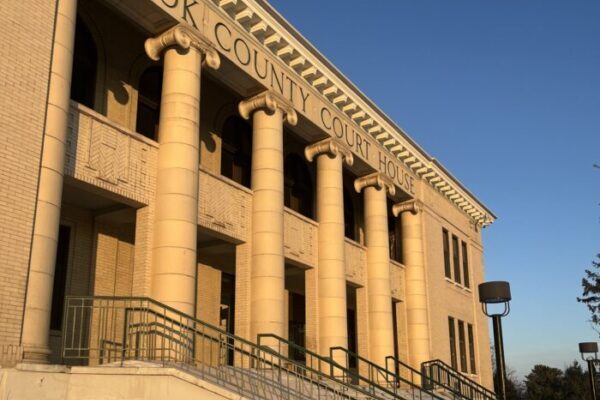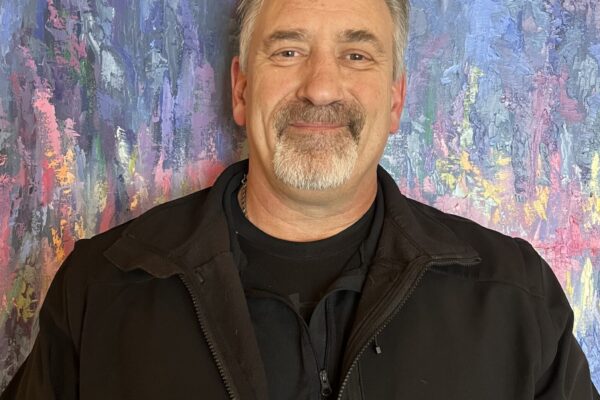County discusses communicating with constituents during CIP bonding public hearing
The Cook County Board of Commissioners held a public hearing on January 30 to gather feedback and comments from county residents. The subject was the bonding proposal that has been put forth to support the Capital Improvement Plan (CIP). The proposal was broken into two parts. The first part would issue bonds to pay for several elements of the CIP. The second was a request for property tax abatement that would support improvements specifically to the Community Center in Grand Maris. Four community members were present for the hearing.
Before the public comments period began, the board heard an explanation of the resolutions from Bruce Kimmel of Ehlers Public Finance Advisors. He began by breaking down the timeline for bonding and when funding for the CIP projects would be available.
He also explained that the improvements to the Community Center were set to be funded by property tax abatement rather than bonding based on state laws regarding capital improvement funding sources. Commissioner Deb White asked Kimmel to explain how this tax abatement plan would function. He detailed what abatement meant in this context.
Kimmel explained that it was not a true abatement- that the county would still collect taxes as usual, and the tax payer experience would not change, but that the resolution directs the revenue from those taxes to the community center project.
In looking at the details of the financial plan and projections for budgets over the coming years, Kimmel pointed out the role that the local option sales tax could play. Kimmel said that once the projects currently funded by the tax have been repaid, the county could opt to continue to collect the tax through 2030, and redirect the funds to projects like the CIP.
Both Commissioners Dave Mills and Stacey Hawkins expressed hesitancy over committing those funds to the CIP when there were other community issues, including child care and housing, that have been raised by residents as places where additional funds were needed.
In discussing the impact of using the sales tax funds elsewhere, Mills wondered about the impact on the financial plan for the CIP. He said, “What if we don’t use local option sales tax revenues for this? Right, then it would only be levy supported and that would be a much greater impact on the levy.”
Kimmel assured the board that the financial plan is not dependent on the use of local option sales tax revenue to stay on budget. He said, “I want to make sure that everyone here understands that you don’t need this local option sales tax in order to chart a viable course.”
When the public comments period was opened, one resident, Avris Thompson, posed a series of questions to the board. Thompson questioned the plan’s flexibility in areas like projected interest or growth rates, and brought up the itemized list included in the announcement of the public hearing in the Cook County News Herald.
Thompson questioned the published breakdown of the bonding budget and listed projects, saying, “When you take all those dollar amounts away from the $3.5 million that you’re going to bond for, it leaves you $1.4 million unidentified. What is that used for? Where does that go?”
No further community members chose to comment either resolution.
As the approval of the CIP bonding resolution was raised for official board consideration, Commissioner Hawkins expressed concern that the bonding would include funds for employing a firm to provide Architectural and Engineering (or A & E servies) for the proposed Justice Center. The Justice Center has been an element of the CIP since it was passed last year, but the construction of the building hinges at this time on the approval of a state bonding request. County Administrator James Joerke has stated on WTIP and in public meetings that if that request is not approved, other sources of funding for the project would need to be considered. He has said that the construction is not grouped with the deferred maintenance project funding for CIP Bonding.
Hawkins expressed her confusion and discomfort over the Justice Center A & E services being included in the proposal, but not mentioned in the public hearing notice. She said, “I feel that we haven’t given them enough time to respond. Do you support 48% of this bonding money going to an architectural firm for a justice center that we may not even want?”
Kimmel clarified that the A & E services were separate from the actual building funding for the Justice Center, and that the proposed bonds would not cover the cost of the Justice Center construction.
Commissioner Ginny Storlie pointed to the importance of having A & E services engaged to strengthen the application for state bonding. She said, “You’ve got to complete the bonding request with all of the criteria, otherwise, they’re not going to look at us. So everything is included, and needs to be included, in order for us to be considered in the legislative session this year.”
While it was established during the meeting that the notice did comply with the state statute on public hearing, and Joerke argued that the A & E services have been discussed publicly as an element of the CIP, both Commissioners White and Hawkins expressed concern about transparency and how the details of the proposal were being conveyed to the public.
Kimmel suggested that in an effort to assuage concerns, the board could opt to separate the A & E services from the current bonding proposal. The separation option would mean that the county would pay for A & E services with cash on hand. and could propose reimbursement for those services through bonding at a later date if the board felt it was necessary.
Commissioner Mills questioned whether there was cash on hand for this expense, and both County Auditor Treasurer Brady Powers and Administrator Joerke stated that there were funds available.
Ultimately the board of commissioners decided to postpone a vote on the bonding resolution to make adjustments to the financial plan documents. There will not be a new public hearing because the amended proposal would be more limited in scope than the original.
The board passed the Tax abatement resolution unanimously, and will revisit the revised bonding proposal at their next regular meeting.














